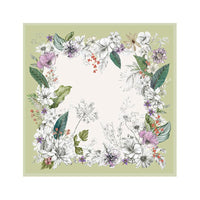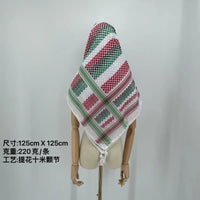Eid al-Adha (translated as Eid al-Adha), also known as "Big Festival", is one of the important Islamic festivals. Eid al-Adha is an Islamic religious festival, which takes place on the 10th of December in the Islamic calendar, about 70 days after the Eid al-Fitr Festival. It and Eid al-Fitr (meat Festival), the festival of sacred discipline and listed as the three major Islamic religious festivals, to hold ceremonies, slaughter cattle and sheep, dinner as the main content.
The Eid al-Adha Festival is a common festival of China's Hui, Uyghur, Kazak, Uzbek, Tajik, Tatar, Kirgiz, Salah, Dongxiang, Baoan and other ethnic minorities. Kurban is called "Erd" in Arabic. Eid al-Adha ", also known as "Erde". Aizuha ". "Erd" means festival, and "Eid" and "Aizuha" both contain the meaning of "killing and offering animals." Therefore, the name of this festival is usually translated into Chinese as "Eid al-Adha", that is, the festival of killing animals and offering sacrifices.

The origin of Eid al-Adha
On the origin of the Eid al-Adha Festival, an ancient religious legend is popular among the people: Prophet Ibrahim to sacrifice his son Ismaili according to Allah's "revelation", when he was about to lift a knife to slaughter, Allah sent a special envoy holding a ram from the sky, indicating that the sheep instead of killing the son, this day is the Arab Lunar calendar December 10. After the founding of Islam, Muhammad designated December 10 as one of the Islamic festivals, which is precisely the last day of the Hajj in Mecca. In this way, Eid al-Adha gradually became a grand annual festival for the Uyghur people who converted to Islam from the early 11th century.
The tenth of December in the lunar year of the Islamic calendar is the "Eid al-Adha Festival". The Gregorian calendar and the Islamic calendar have a difference of 11 days each year, so the Gregorian calendar of Eid al-Adha is not fixed every year. Before Eid al-Adha, Muslims clean their homes and are busy killing or buying sheep and cattle and making various pastries.
On this day, bathing and praying, each family slaughters sheep, camels and cows, distributes poor people, receives guests, and presents friends and relatives. Groups of people visit relatives and friends in their homes, and the host presents a sumptuous feast according to traditional etiquette. We eat lamb stew, pilaf, baked steamed buns, oil pastries and melons, etc., and talk intimately. Men, women and children dressed in festive costumes, enjoy singing and dancing in the courtyard and square, immersed in the inexhaustible joy.
Nationality custom
1.A Ritual
Ritual is one of the core contents of Eid al-Adha. After bathing and dressing, Muslims will gather in the city center mosque or open countryside to hold a grand ceremony, with the main content of reciting the Quran and remembering the prophet and praising the sages.
After the ceremony, families will go to the cemetery to pray, remember and pray for the dead loved ones.

2.Butcher animal
Muslims all over the country must prepare animal spirits (sheep, cattle, camels) three days before the festival, and large families use camels, middle families use cows, and small families use sheep, and those who cannot afford to kill animals are exempted. The meat is usually divided into three portions: one for self consumption, one for friends and neighbors, and one for the poor.

3.Gift balm
Three days near the Eid al-Adha Festival, housewives of every household will be busy, they want to make a large number of fried sangzi and a variety of fine snacks, for the holiday to celebrate the family and friends and distant visitors to prepare enough food. The festival has also become a great showcase and competition for housewives' cooking skills and homemaking virtues.

4.Hold religious services
During Eid al-Adha, mosques hold special religious events such as prayers, sermons and hadith studies. The faithful gather at the mosque to celebrate the festival.

5.Family gathering
Eid al-Adha is a time for family reunion. In this festival, far away family members will return home in advance to enjoy the festival with their families. Families will cook together, eat together, and share the joy of the holiday together. This atmosphere of family reunion enhances the feelings between families and strengthens the cohesion of the family.

Eid al-Adha is a festival for Muslim friends and has carried forward the spirit and beliefs of Islam throughout its long history. The true meaning of Eid al-Adha is "to let the poor be cared for, to let those around them be loved, to let the world know loyalty and righteousness." Every year on the Eid al-Adha Festival, some friends from all over the country will participate in the festival celebrations with the Muslim masses, renew friendship, send thick blessings to the hearts of every Muslim masses, and deep friendship spreads in the festival, promoting national unity.





